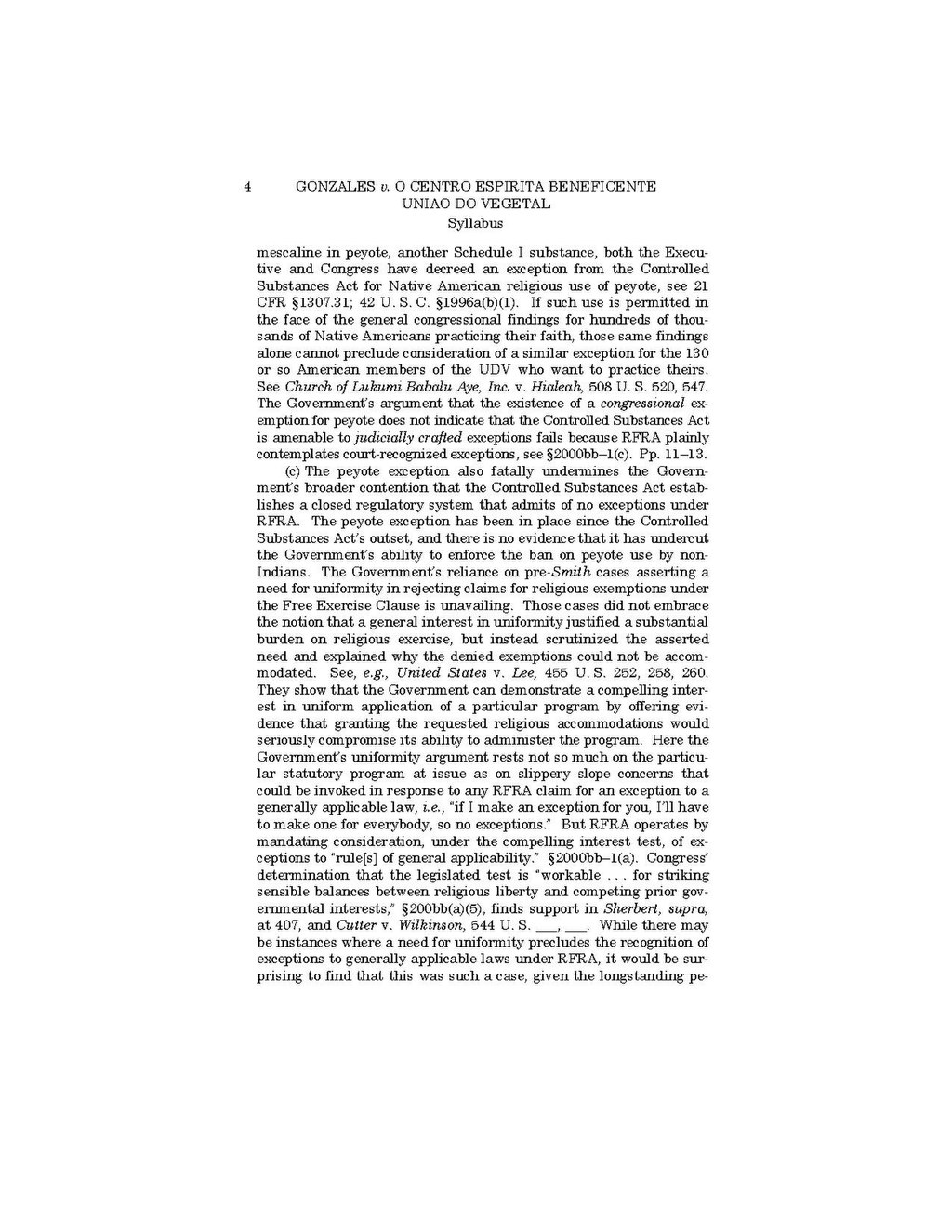Syllabus
mescaline in peyote, another Schedule I substance, both the Executive and Congress have decreed an exception from the Controlled Substances Act for Native American religious use of peyote, see 21 CFR §1307.31; 42 U. S. C. §1996a(b)(1). If such use is permitted in the face of the general congressional findings for hundreds of thousands of Native Americans practicing their faith, those same findings alone cannot preclude consideration of a similar exception for the 130 or so American members of the UDV who want to practice theirs. See Church of Lukumi Babalu Aye, Inc. v. Hialeah, 508 U. S. 520, 547. The Government's argument that the existence of a congressional exemption for peyote does not indicate that the Controlled Substances Act is amenable to judicially crafted exceptions fails because RFRA plainly contemplates court-recognized exceptions, see §2000bb–1(c). Pp. 11–13.
(c) The peyote exception also fatally undermines the Government's broader contention that the Controlled Substances Act establishes a closed regulatory system that admits of no exceptions under RFRA. The peyote exception has been in place since the Controlled Substances Act's outset, and there is no evidence that it has undercut the Government's ability to enforce the ban on peyote use by non-Indians. The Government's reliance on pre-Smith cases asserting a need for uniformity in rejecting claims for religious exemptions under the Free Exercise Clause is unavailing. Those cases did not embrace the notion that a general interest in uniformity justified a substantial burden on religious exercise, but instead scrutinized the asserted need and explained why the denied exemptions could not be accommodated. See, e.g., United States v. Lee, 455 U. S. 252, 258, 260. They show that the Government can demonstrate a compelling interest in uniform application of a particular program by offering evidence that granting the requested religious accommodations would seriously compromise its ability to administer the program. Here the Government's uniformity argument rests not so much on the particular statutory program at issue as on slippery slope concerns that could be invoked in response to any RFRA claim for an exception to a generally applicable law, i.e., "if I make an exception for you, I'll have to make one for everybody, so no exceptions." But RFRA operates by mandating consideration, under the compelling interest test, of exceptions to "rule[s] of general applicability." §2000bb–1(a). Congress' determination that the legislated test is "workable... for striking sensible balances between religious liberty and competing prior governmental interests," §200bb(a)(5), finds support in Sherbert, supra, at 407, and Cutter v. Wilkinson, 544 U. S. ___, ___. While there may be instances where a need for uniformity precludes the recognition of exceptions to generally applicable laws under RFRA, it would be surprising to find that this was such a case, given the longstanding pe-
